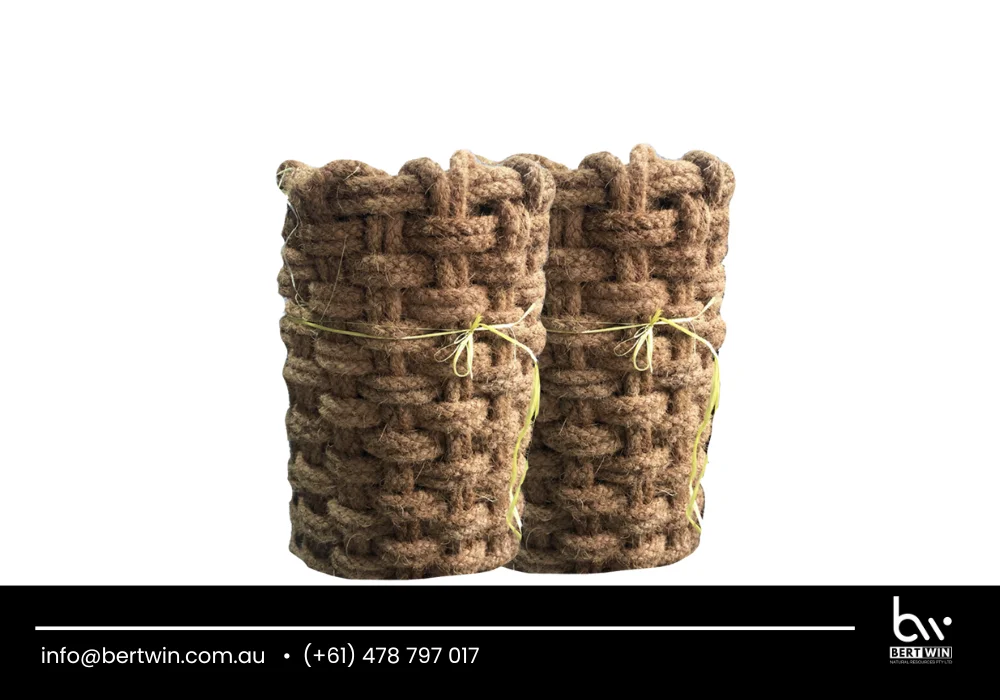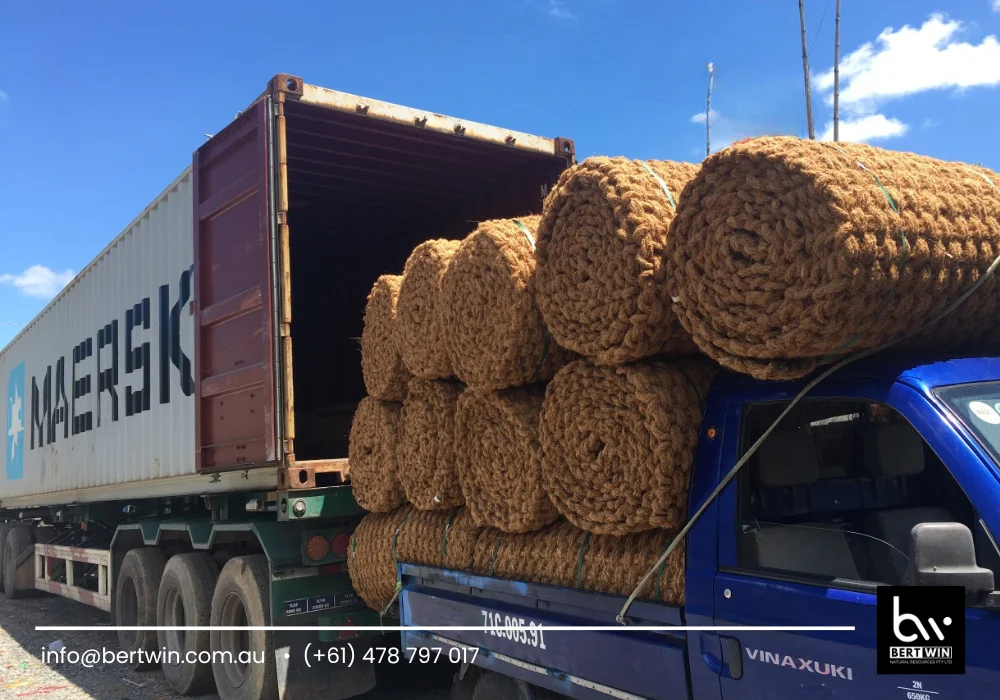Introduction to Natural Coconut Fiber Mat

Natural coconut fiber mat is gaining widespread recognition in industries ranging from agriculture to construction and home décor. Made from the fibrous husk of coconuts, this mat is an excellent example of a sustainable, biodegradable material. The use of natural coconut fiber mat has increased as businesses and consumers seek environmentally friendly alternatives to synthetic products. Its natural texture, resilience, and renewability make it a smart choice for those looking to combine performance with sustainability.
What Is a Natural Coconut Fiber Mat?
Natural coconut fiber mat, also known as coir mat, is crafted from the husk of mature coconuts. These mats are formed by weaving or pressing the fibers together, sometimes with a natural rubber backing. They are known for being durable, biodegradable, and capable of withstanding heavy foot traffic and weather conditions.
These mats are commonly used for:
- Erosion control in landscaping and construction sites
- Weed prevention in gardens and plantations
- Entrance mats for homes and commercial spaces
- Sound insulation and thermal padding in interior design
With increasing awareness of the environmental impact of plastic and synthetic materials, the demand for natural coconut fiber mat has grown significantly. The mat provides both practical benefits and environmental responsibility.
Environmental Benefits of Coconut Fiber Mats
The production of natural coconut fiber mat involves minimal processing and energy use compared to synthetic alternatives. The raw material, coconut husk, is often a byproduct of the coconut industry, meaning it is repurposed rather than discarded. This contributes to a circular economy and reduces agricultural waste.
Key Environmental Advantages:
- 100% Biodegradable: Unlike plastic-based mats, coir mats decompose naturally without leaving harmful residues.
- Sustainable Sourcing: Coconuts are widely cultivated in tropical regions, making the fiber readily available.
- Low Carbon Footprint: Manufacturing processes for natural coconut fiber mats are energy-efficient.
- Zero Waste: Every part of the coconut can be used, with the husk specifically repurposed for mat production.
These eco-advantages make the natural coconut fiber mat a preferred material for eco-conscious individuals and organizations.
Industrial Applications and Uses
Natural coconut fiber mat is not just popular among homeowners; it also serves a wide range of industries. Here are several practical uses of the mat:
Agriculture and Horticulture
Farmers and landscapers use coconut fiber mats for mulching and soil stabilization. These mats reduce water evaporation, prevent weed growth, and eventually decompose into the soil, enriching it with organic matter.
Erosion Control
In construction and civil engineering, natural coconut fiber mat is laid on slopes and riverbanks to prevent soil erosion. It holds the soil in place until vegetation takes root, after which the mat naturally breaks down.
Home and Commercial Use
The mat’s aesthetic, natural look makes it popular for home décor, especially as doormats and carpet underlays. In commercial spaces, they are used for durable flooring solutions in eco-conscious establishments.
Industrial Design and Manufacturing
Natural coconut fiber mat is also employed in the automobile industry for seat padding and insulation. Its resistance to bacteria and fungi makes it an ideal option in environments requiring cleanliness and durability.
Care and Maintenance Tips

Maintaining a natural coconut fiber mat is simple:
- Regular Shaking: Shake the mat to remove dirt and debris.
- Spot Cleaning: Use a mild detergent and water to clean spots.
- Sun Drying: Allow the mat to dry under the sun to eliminate moisture and maintain freshness.
Since these mats are biodegradable, it’s advisable not to soak them excessively in water, as this can accelerate decomposition.
Conclusion
The natural coconut fiber mat is a sustainable, versatile product offering both environmental and functional benefits. Its wide-ranging applications across industries—from agriculture to interior design—demonstrate the mat’s adaptability and growing popularity. As the world shifts towards eco-friendly alternatives, using a natural coconut fiber mat is a small yet impactful way to contribute to a greener planet.
For further information, you may contact WhatsApp at (+61) 478797017 or via email at info@bertwin.com.au.
